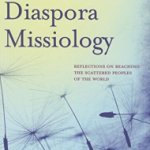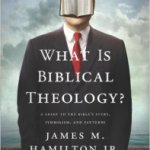Missiology at times is dominated by the social sciences and pragmatism. Appeals to Scripture sometimes ignore the context. World Mission: Theology, Strategy, & Current Issues, edited by Scott N. Callaham and Will Brooks, is a series of essays seeking to change that. The back cover boldly states the aim of the book:
WORLD MISSION NEEDS A FULLY BIBLICAL ETHOS. This is the contention of the editors of and contributors to World Mission, a series of essays aimed at reforming popular approaches to missions.
In the first set of essays, contributors develop a biblical theology from both the Old and New Testaments, arguing that the theology of each must stand in the foreground of missions, not recede into the background. In the second, they unfold the Great Commission in sequence, detailing how it determines the biblical strategy of all mission enterprises. Finally, they treat current issues in world mission from the perspective of the sufficiency of Scripture.
Altogether, this book aims to reform missions to be thoroughly – not just foundationally – biblical, a needed correction even among the sincerest missionaries. World Mission: Theology, Strategy, & Current Issues, back cover.
![World Mission: Theology, Strategy, and Current Issues by [Callaham, Scott N.]](https://i0.wp.com/images-na.ssl-images-amazon.com/images/I/410espOeZ7L.jpg?w=819&ssl=1) It is clear from the quote above and throughout the essays that the contributors believe that the current practice of missions needs reform. Yet their style is not combative. The essays focus on building a positive biblical ethos rather than criticizing the current state of affairs. The authors reject proof-texting and seek to develop mission theory and practice in light of contextual biblical interpretation.
It is clear from the quote above and throughout the essays that the contributors believe that the current practice of missions needs reform. Yet their style is not combative. The essays focus on building a positive biblical ethos rather than criticizing the current state of affairs. The authors reject proof-texting and seek to develop mission theory and practice in light of contextual biblical interpretation.
Ethnic identity surfaces in the first two essays. In the essay, “Old Testament Theology and World Mission,” Scott N. Callaham makes the case that mankind’s creation in the image of God implies that ethnicity is not a fundamental element of identity. All ethnicities share a common core identity as bearers of God’s image. In the essay “New Testament Theology and World Mission,” the restoration of the image of God in fallen mankind is accomplished through Jesus Christ, the true image of God. Union with Christ is the foundational identity maker for restored humanity. The author, Wendel Sun, states,
I am arguing throughout this chapter that socioeconomic and/or cultural backgrounds are not to be the primary identifiers for those united to Christ. In multiethnic settings, a church’s identity in Christ supersedes such differences, and the unity found in Christ is a beautiful reflection of the gospel. (60,61)
The biblical story is emphasized throughout the book as the true story of reality. Wendel Sun in the essay “Biblical Theology and World Mission” summarizes the biblical story as:
… God, the Creator King, is reestablishing his kingdom in the world through keeping his covenant promises to Abraham, Israel, and David in the life, death, and resurrection of his Son Jesus Christ, who will reign forever in the new creation with his new covenant people. (69)
The essays in the strategy section center on making disciples. In the introduction to the section, the editors write:
obeying the Great Commission requires making disciples of all nations, which at a minimum must include the practices of baptism and theological education in accordance with Scripture. (104)
The strategy section contains the following essays: “Focus on ‘All Nations’ as Integral Component of World Mission Strategy” by Jarvis J. Williams and Trey Moss; “Baptism as Integral Component of World Mission Strategy” by John Massey and Scott N. Callaham; and “Theological Education as Integral Component of World Mission Strategy” by Sunny Tan and Will Brooks.
Theological education at all levels is an essential part of making disciples for the health of the church:
Theology is about knowing God. In that sense, teaching theology enables forming a biblical worldview and knowing the biblical story so well that Christians are able to respond to situations in life in ways that align with biblical truth. Theological education seeks to equip people with exegetical and theological skills to apply Scripture in their contexts. (186)
The final section of the book focuses on “Current Issues in World Mission.” Essays include: “Language and World Mission” by Scott N. Callaham; “Grammatical-Historical Exegesis and World Mission” by Will Brooks; “Biblical Theology for Oral Cultures and World Mission” by Jackson W.; and “Paul as Model for the Practice of World Mission” by Will Brooks.
Callaham reminds us that it is God’s message that we are communicating. He emphasizes that knowledge of biblical languages and the host language is important for the missionary. Will Brooks makes an excellent case that “the grammatical-historical method of interpretation is the method best suited for cross-cultural interpretation” (240). Jackson W. highlights the importance of the biblical story as the organizing framework for oral cultures. Will Brooks examines Romans 15:8-21 for understanding Paul as a model for mission practice.
The contributors have cross-cultural experience (mostly in Asia) and have a passion for world mission. They have provided us with an example of thinking about world mission founded in biblical theology. They call us back to the source – the Bible itself. Some may think differently on some issues but all committed to the authority should welcome an invitation to build a biblical ethos for world mission. I highly recommend the book.









Thanks so much for this review, Gary. I’ve order it, just tonight. Supposed to be here in two days! Wonderful! Thanks again. The review looks really good.
Mike
>